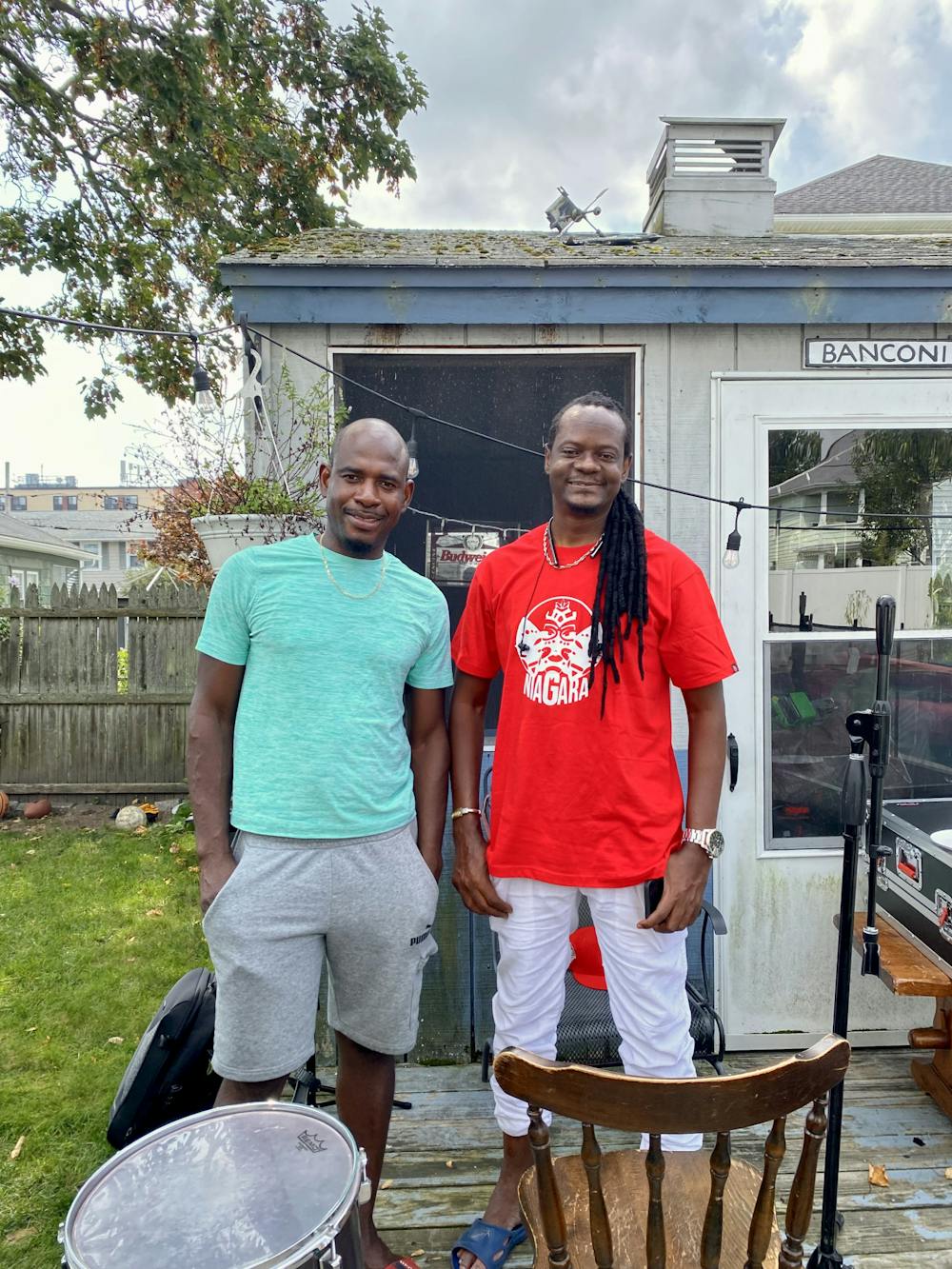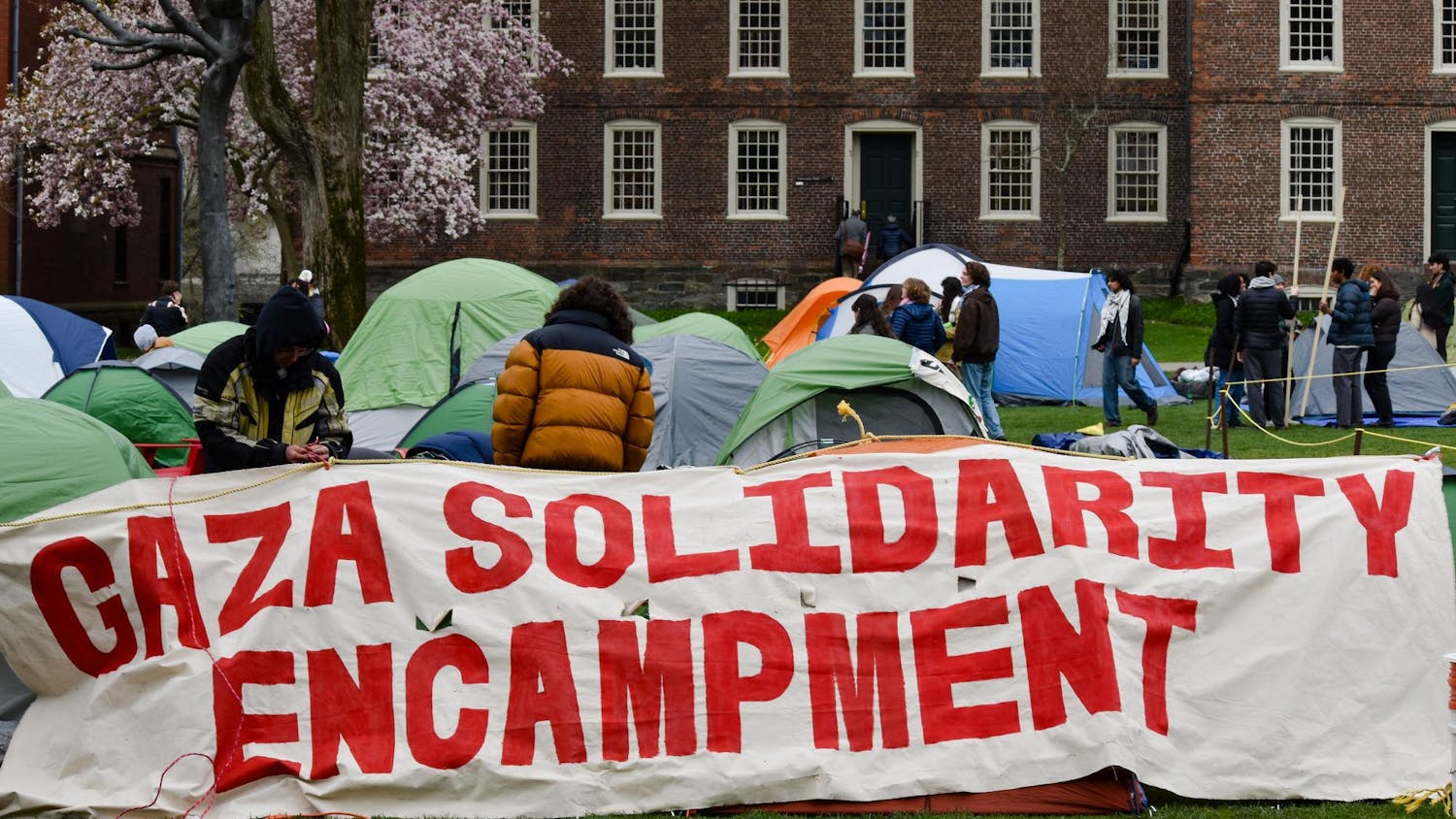Set to take the stage for the Afrika Nyaga Drum Festival’s 11th annual performance during PVDFest on Sept. 10, Malian Djembe Master Sidy Maïga and his selected group of artists were practicing constantly in the weeks leading up to the festival.
The festival — a “series of African-culture performances” meant to celebrate and uplift the African diaspora within Providence, according to the City’s website — was headed by Maïga and included performances by Oumou Sangaré, Wunmi, Master Soumy, Manolo Mairena & La Pura Vida, Projetu Batuku and Haus of Glitter Dance Company.
When curating the drum festival’s lineup, Maïga said he looked not just to influences from Mali, but also to “Senegalese, Congolese, Afrikaans” and “Afrobeats” styles.
While this year’s performance was halted part-way due to poor weather conditions, the festival’s acts were able to complete their performances at The Parlour Providence later that night, Maïga wrote in a message to The Herald.
“It is unfortunate that we couldn't share this incredible experience with festival goers because of the storm, but we look forward to welcoming Sidy and our many PVDFest artists back to next year's festival,” Mayor Brett Smiley wrote in an email to The Herald.
Maïga, who has resided in Providence for roughly 18 years, has been practicing music since his childhood. Originally from Bamako, Mali, Maïga said he started drumming when he was five years old, adding that while “all young Malian(s) do that … most of us don’t keep playing.”
“I had nobody in my family that was (a) musician,” Maïga said in an interview with The Herald conducted in a mixture of French and English. “I did everything on my own. … I grew up with not a lot of money.”
Though Maïga’s musical pursuits eventually began to interfere with his academics and strain his relationship with his father, he continued to pursue music and was “able to complete school.”
“If you work, you can get (almost) everything you want,” Maïga said.
Maïga later moved to the United States, where he attended Berklee College of Music and “got to meet more people from different backgrounds,” allowing him to incorporate multiple musical styles into his music today. After finishing his college career, Maïga moved to New York and eventually followed his then-wife to Providence for her studies.
Maïga said his family is now “very proud” of his career and mentioned that his son, who has been “playing with (him) since (he) was two,” performed with him during the last PVDFest.
“Sidy Maïga is an incredible local artist of international renown in his own right,” Smiley wrote. He “is a true visionary when it comes to curating performances for PVDFest.”
Soumy, also originally from Mali, has worked as a singer, rapper, composer and producer for over 20 years. Soumy said he sings about “social problems” and discusses issues such as “injustice, corruption, bad governments, democracy and human rights.”
“My music is hip-hop,” Soumy said, describing his music as a blend of modern and traditional music. It’s “young people music … (that talks) about problems … (and) revolution.” Soumy aims to highlight traditional instruments like the djembe as integral parts of his music.
Soumy first came to the U.S. in 2014 to perform across the East Coast, though he described having a particular soft spot for Providence, the “city where art lives.”
According to Soumy, PVDFest’s Afrika Nyaga Drum Festival is intended to convey themes of “authority” that resonate with U.S. audiences.
Maïga, who arranges the festival’s lineup, said that he works directly with musicians and aims to put on a balanced show, featuring artists from all different parts of Africa.
“The festival has evolved more and more each year,” Soumy said. It is “important that the festival (is promoting) African music in Providence (and) the USA.”
He added that “you can listen to African music” in nightclubs, restaurants and other public spaces in a way that wasn’t previously possible, highlighting the importance of greater performance opportunities for traditionally underrepresented artists.
Though audiences in Providence may be less familiar with the styles of music in drum festival performances, Maïga emphasized that “we have an African community here” and the aim of the festival is to introduce audiences to the vivid cultures of African nations and people.
“Only the problems make it to the news,” he said. Not “how we raise our kids, how we started music, how we take care of our animals. … We are more than just famine and war and poverty.”
Maïga added that, while Providence was taking positive steps towards improving African musical and cultural representation, he and other artists “need more coverage.”
The City “should invest more, ... then we can try (to) also educate people about (African music and cultures) so it’s not (seen as) weird,” Maïga said, though he acknowledged that he has “received a lot of love and help and support” from the Providence community.
Soumy mentioned that U.S. exposure is crucial for the promotion of African music and encouraged the public to “listen to the music on social media and (other) platforms” or come see performances in person.
Speaking to the future, Maïga said that “success depends on how many people you can reach (or) make happy with your music.”
“I’m hoping to sell more, as many (shows) as possible until I can’t anymore,” he said. “Reach as many people as possible … motivate them … (and) help them raise money. … Anything I can provide.”
Jack Tajmajer is a Metro editor who oversees the Beyond Brown beat. He is a Senior from Bethany, Connecticut and Bethlehem, New Hampshire studying Political Science and Economics. His mother operates an alpaca farm and he tried a blueberry for the first time at age 17.





